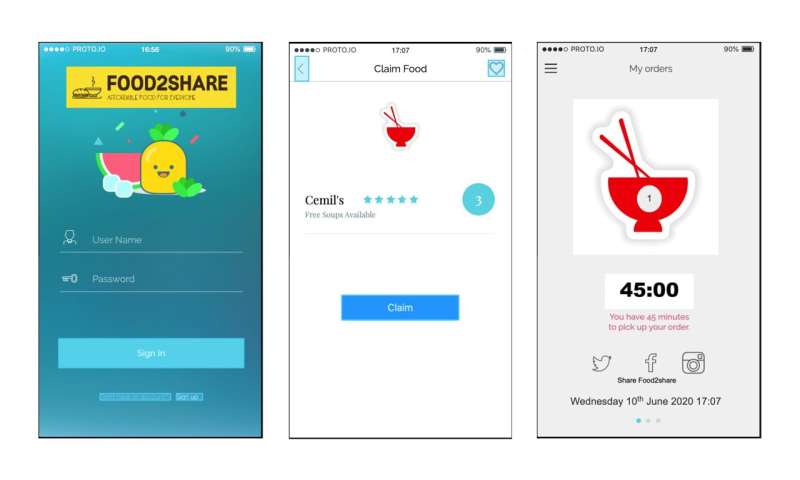
Nearly 15 percent of U.S. households—and nearly 18 percent of households with children—reported food insecurity early in the COVID-19 pandemic, according to a survey conducted via social media by researchers at NYU School of Global Public Health. The findings, published in Nutrition Journal, illustrate how the pandemic has worsened food insecurity, even among social media users who are more well-off than the general population.
Prior to the pandemic, approximately 11 percent of households in the United States were food insecure, lacking consistent access to enough food—both in quality and quantity—for an active, healthy life.
“Food security is not only about putting calories into our bodies, but also what we eat—and it is calorie-dense, nutrient-poor foods that are typically cheap and affordable. So while food insecurity can lead to hunger, over time it can also lead to obesity and other related metabolic dysregulation,” said Niyati Parekh, professor of public health nutrition at NYU School of Global Public Health and the study’s lead author.
The pandemic has significantly changed our food landscape, with high unemployment producing long lines at food banks, interruptions in supply chains leaving shelves empty, and lockdowns prompting some consumers to stockpile shelf-stable groceries. Moreover, school closures made it more difficult for the 30 million children who depend on the National School Lunch program to access low-cost or free meals.
Using social media to measure food insecurity
To understand COVID-19’s impact on food insecurity early in the pandemic, NYU researchers created and administered an online survey in mid-April 2020, recruiting participants through Facebook and Instagram. They surveyed more than 5,600 adults from across the country, 25 percent of whom had children at home, to assess their food insecurity using a six-item questionnaire developed by the U.S. Department of Agriculture.

The researchers found that 14.7 percent of participants reported having low or very low food security in their households; this grew to 17.5 percent among households with children. Those who were unemployed, had less than a bachelor’s degree, and had lower incomes were more likely to be food insecure. Living in urban versus rural areas was not associated with food insecurity.
“Compared to the general U.S. population, our survey sample of social media users was predominantly white and had higher levels of education and income. Nonetheless, our findings illustrate a rise in food insecurity early in the pandemic, particularly among families with children,” said Parekh.
Tackling food insecurity with the help of technology
The researchers call for both short- and long-term approaches to address food insecurity, including policy changes like further expansion of food stamps. They are also in the process of developing an innovative tool to keep leftover food from going in the trash—and instead, getting it to families in need.
“Studies suggest that around one-third of all food globally is wasted, especially nutrient-dense foods such as fruits, vegetables, and dairy,” said Parekh. “How can we divert food, particularly perishables, from being wasted and redirect it to those who are food insecure?”
Parekh and her colleagues in NYU’s Public Health Nutrition research group are creating a mobile app called “Food2Share,” designed as a digital marketplace to connect local restaurants with food-insecure individuals. Once the app is launched, people will be able to claim food from local restaurants willing to provide free or highly discounted food donated by other customers. The prototype of the app is described in the annual journal of the United Nations System Standing Committee on Nutrition.
“During the COVID-19 pandemic, when restaurants were forced to close, many owners rose to the challenge of providing food to those in need and to front-line responders through grassroots food-distribution initiatives,” said Parekh, “Scaling up these initiatives and other food salvaging efforts using technology and applying them to the global context could help reduce the food insecurity we have witnessed during the crisis.”
“Strategies to tackle food insecurity must be considered as an important part of emergency preparedness planning efforts moving forward,” Parekh added.
More information: Niyati Parekh et al, Food insecurity among households with children during the COVID-19 pandemic: results from a study among social media users across the United States, Nutrition Journal (2021). DOI: 10.1186/s12937-021-00732-2
Citation: COVID-19 pandemic exacerbated food insecurity, especially in families with children (2021, September 22) retrieved 5 October 2021 from https://medicalxpress.com/news/2021-09-covid-pandemic-exacerbated-food-insecurity.html
This document is subject to copyright. Apart from any fair dealing for the purpose of private study or research, no part may be reproduced without the written permission. The content is provided for information purposes only.
Note: This article have been indexed to our site. We do not claim legitimacy, ownership or copyright of any of the content above. To see the article at original source Click Here









![[Occasion] Go Gun-ju passed away, etc. thumbnail](http://img.segye.com/static/2019_segye/resources/images/logo_bk.jpg)


